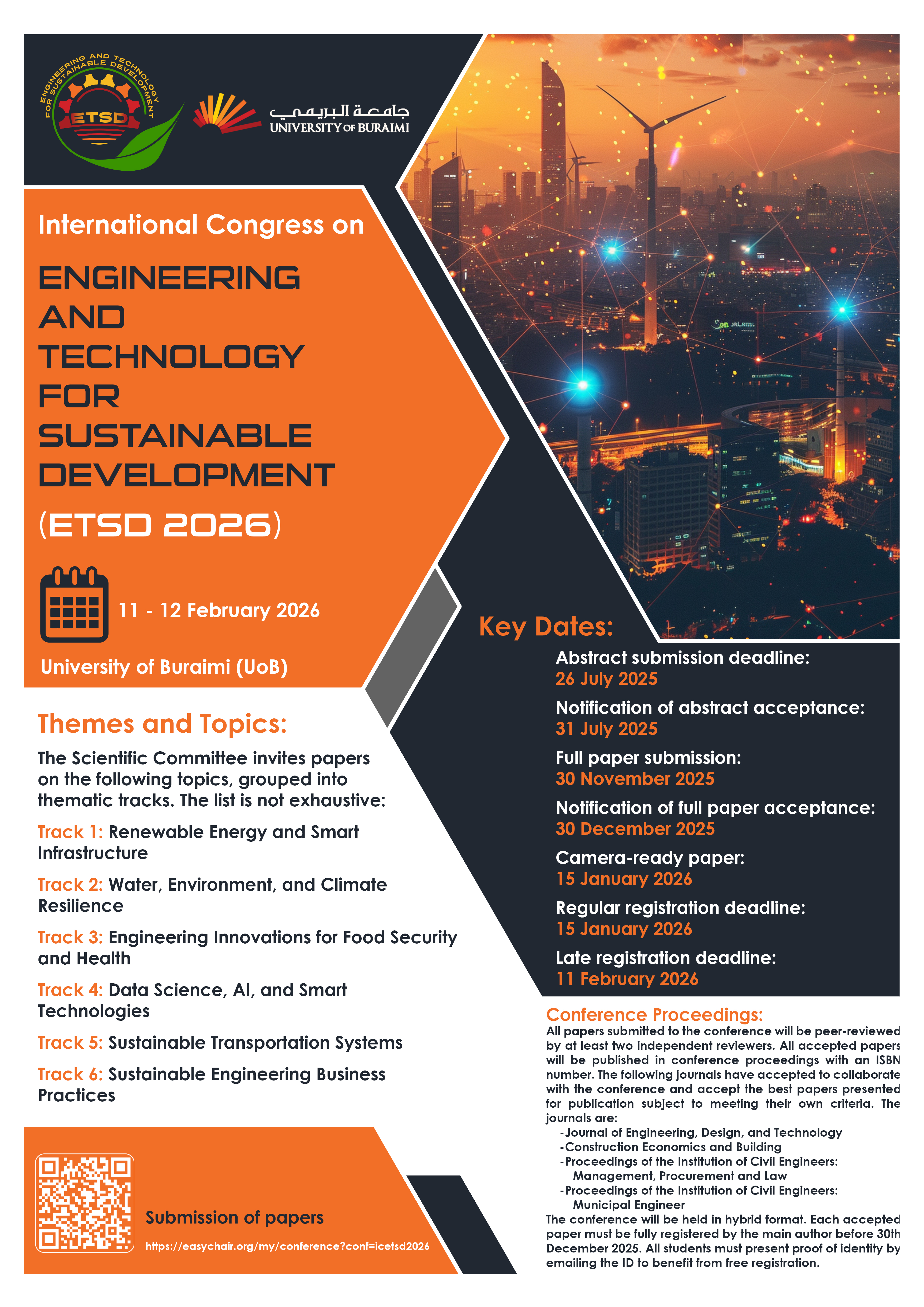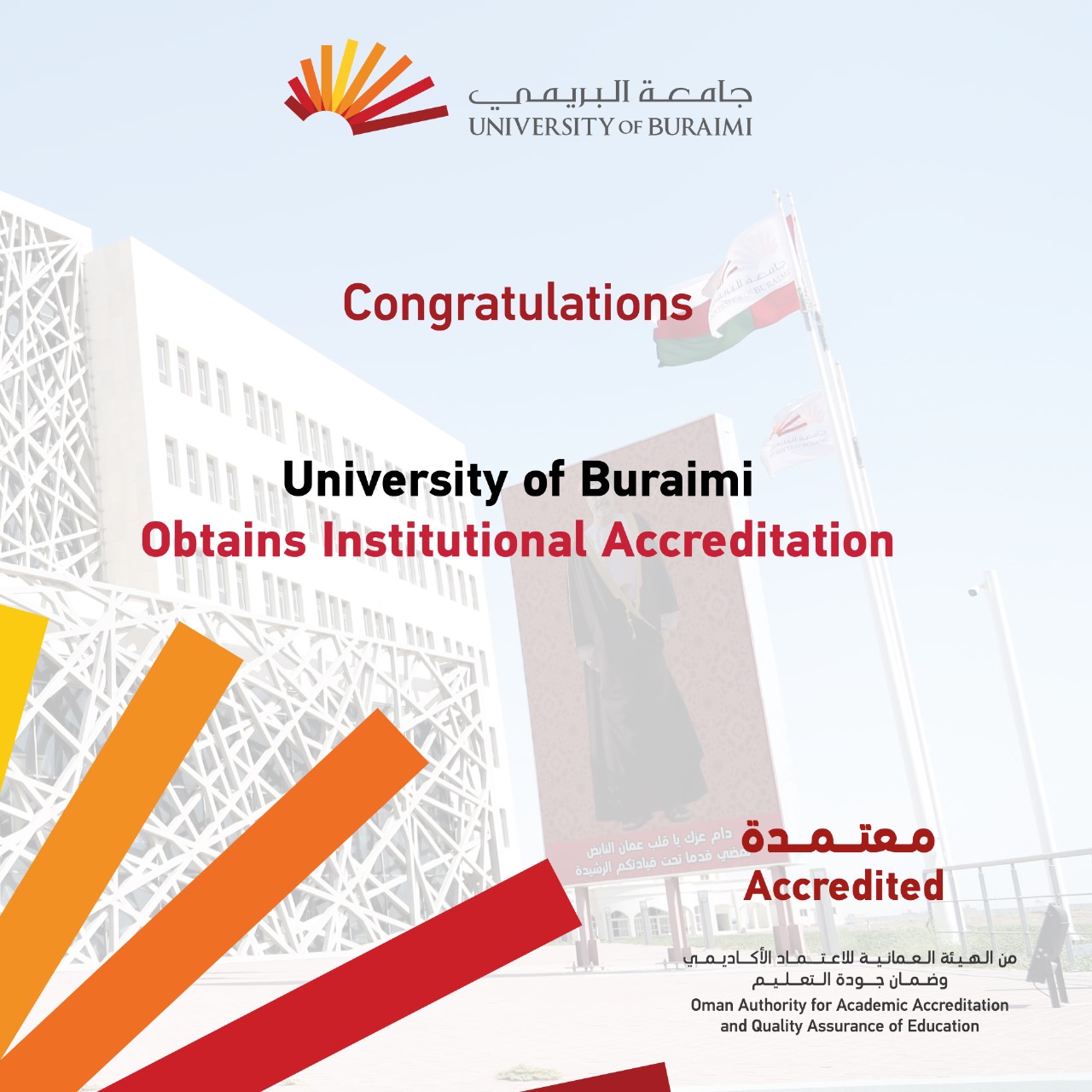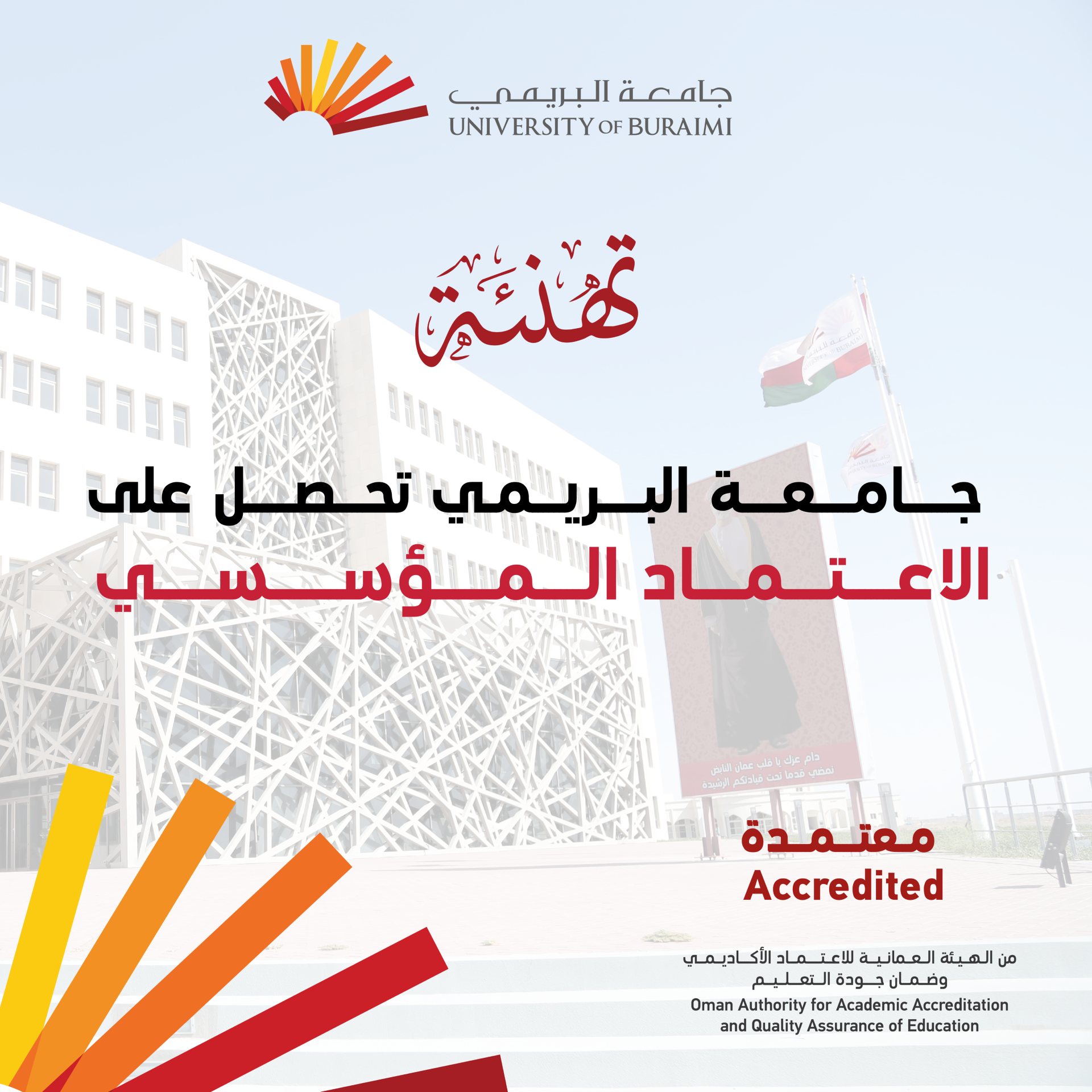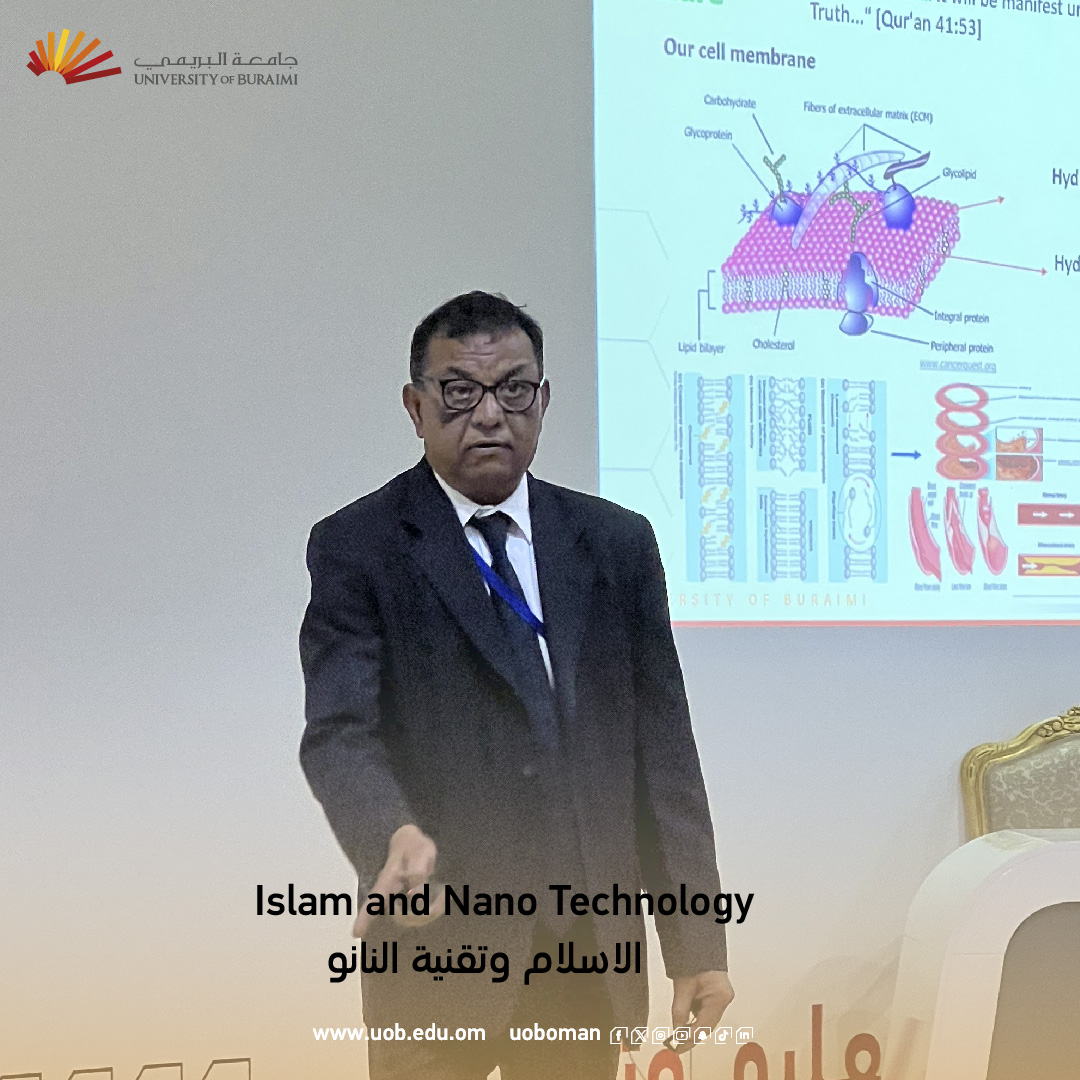Islam and Nanotechnology
Location: UOB
In an engaging presentation titled "Islam and Nano Technology" by Dr. Mohammad Changez of the College of Health Sciences at the University of Buraimi, the intersection of religious concepts and modern science, specifically in the field of Nano Technology, was explored. The session aimed to motivate teachers and students to connect Islamic principles with scientific advancement, with a focus on the applications of nano technology in the fields of electronic, phonetic devices and biomedical engineering.
The presentation highlighted the existence of similarities between Islamic practices and scientific phenomena. In Islam, people pray in congregation with an organized row formation, which reflects the organized arrangement of molecules and atoms in nanodevices, suggesting that organized formations lead to improved performance.
The speaker also highlighted the similarities between Islamic cultural practices and chemistry, consistent with the principle of "like dissolves like." Just as Muslims gather in different councils based on characteristics or gender, so too do chemical molecules interact according to their personality and nature. Likewise, the Islamic concept of brotherhood found a strong analogy in the delicate hydrogen bonds that hold water molecules together, a fragile but vital force that reminds us of the Islamic emphasis on interconnectedness and unity.
These concepts highlight the deep relationship between faith and science and open up new horizons for problem-solving and innovation. By understanding the divine principles embodied in nature, we can look at scientific challenges with new eyes and gain a deeper understanding of the world around us.
The presentation concluded with the speaker emphasizing that these concepts can be practically applied in everyday life.



